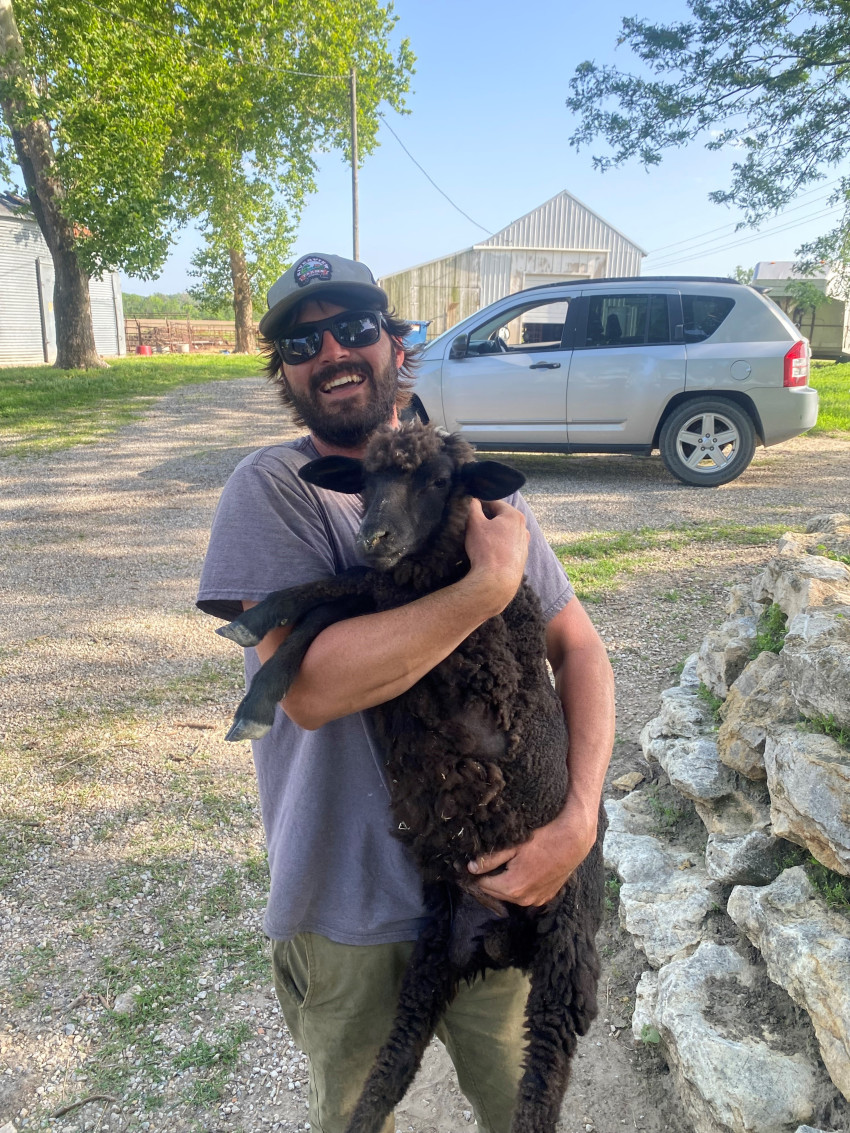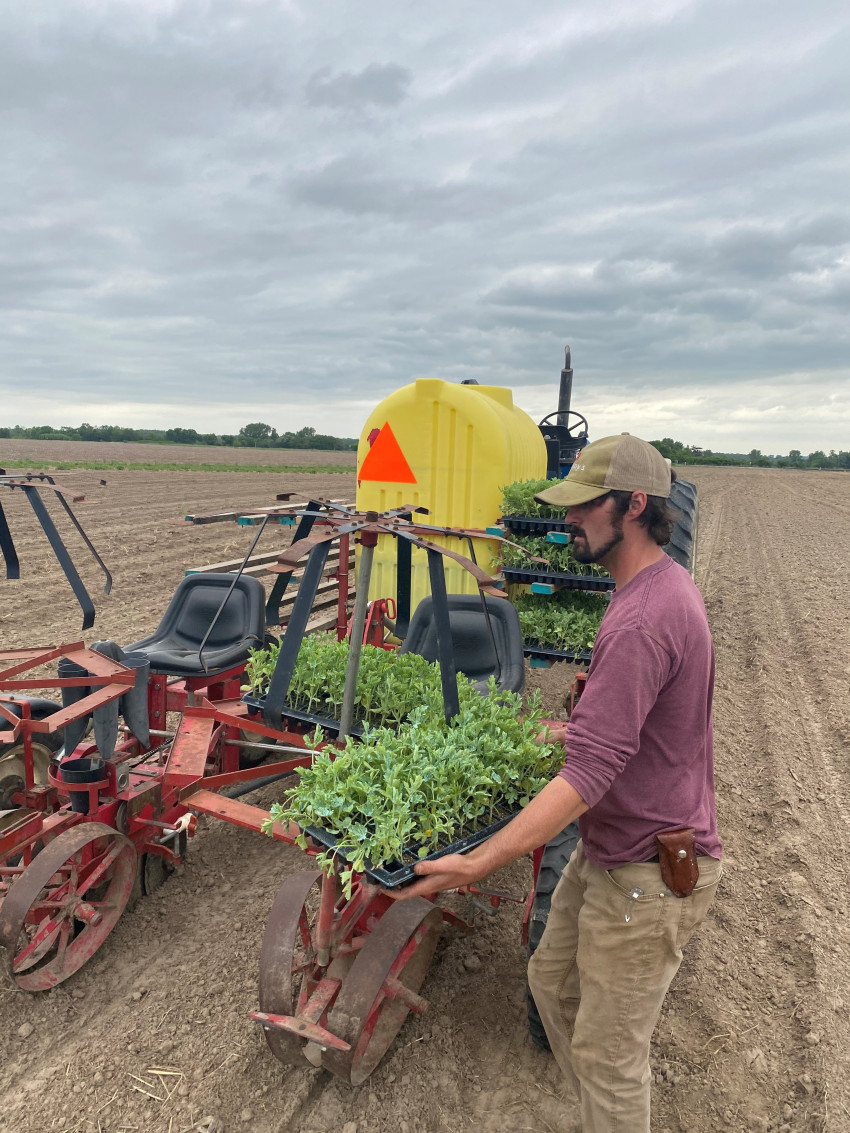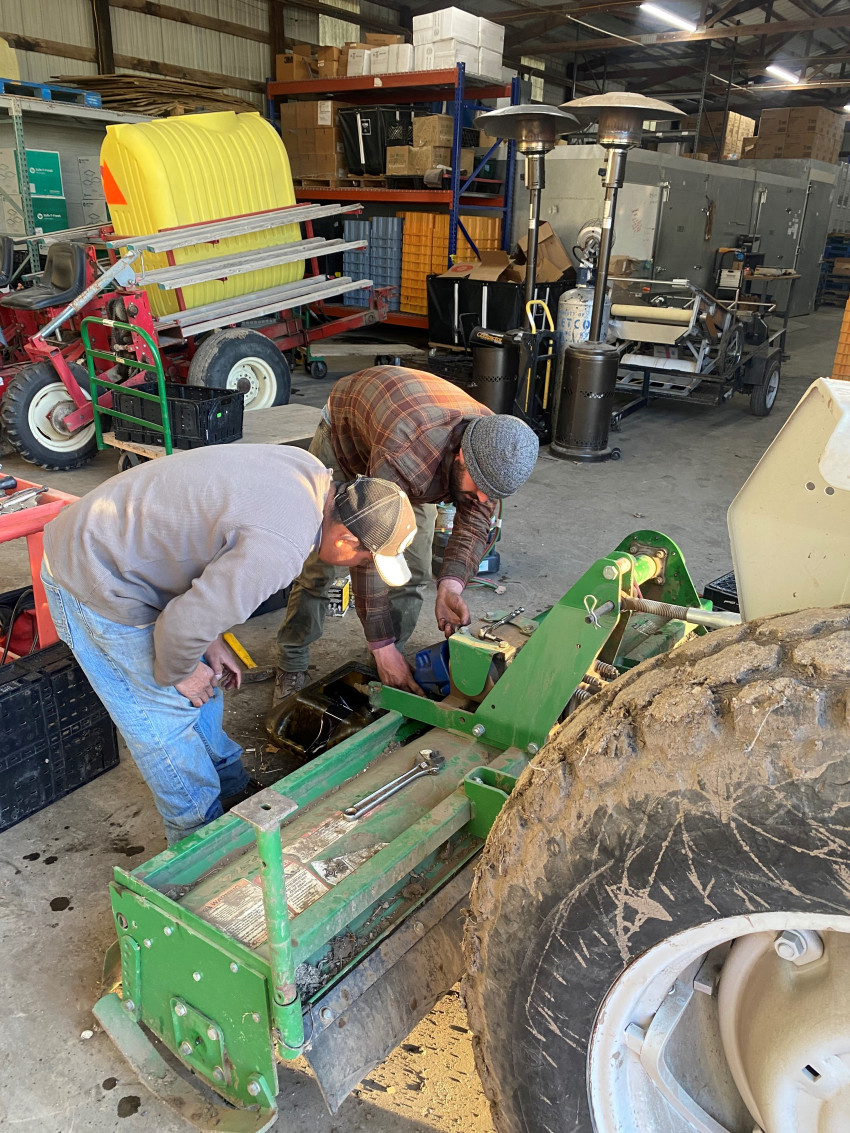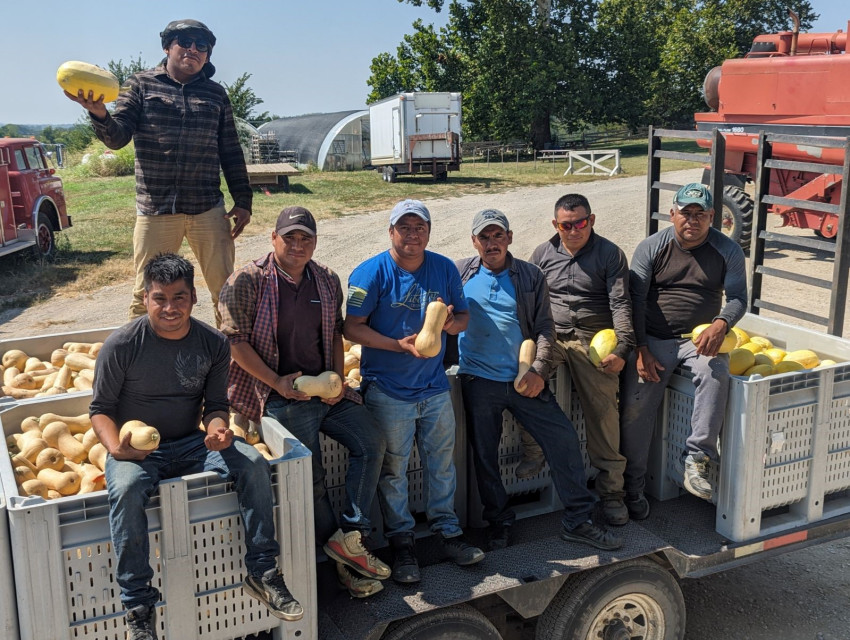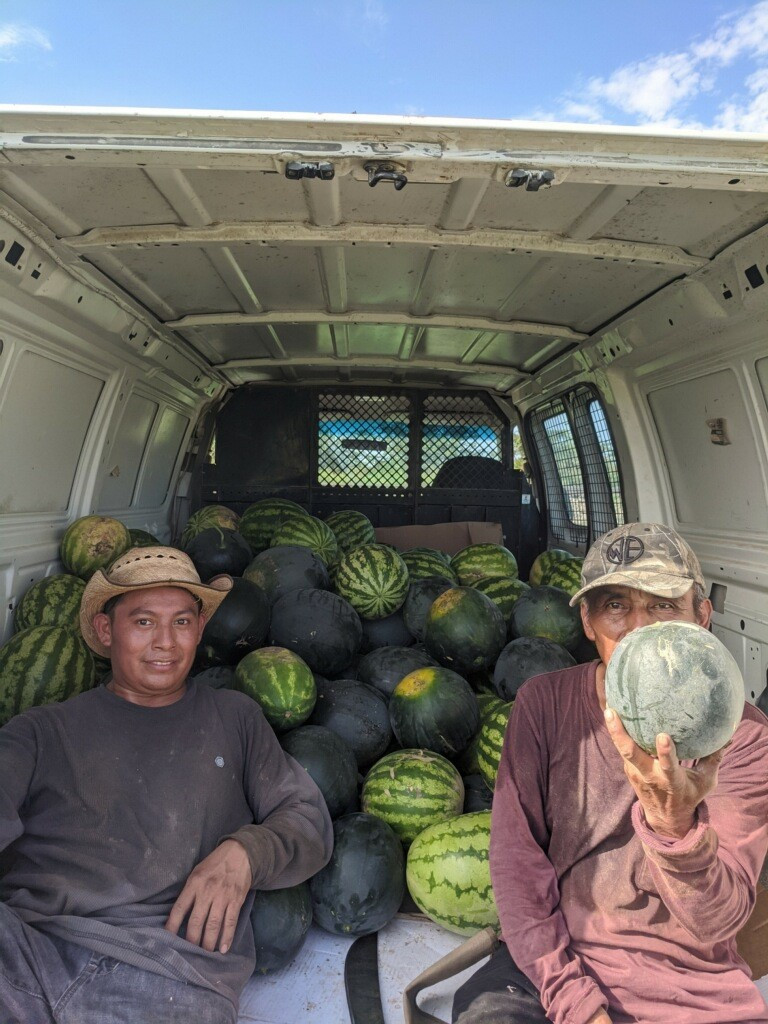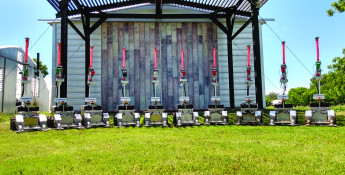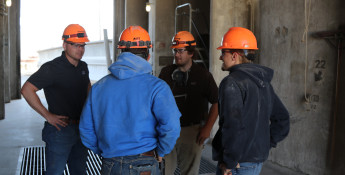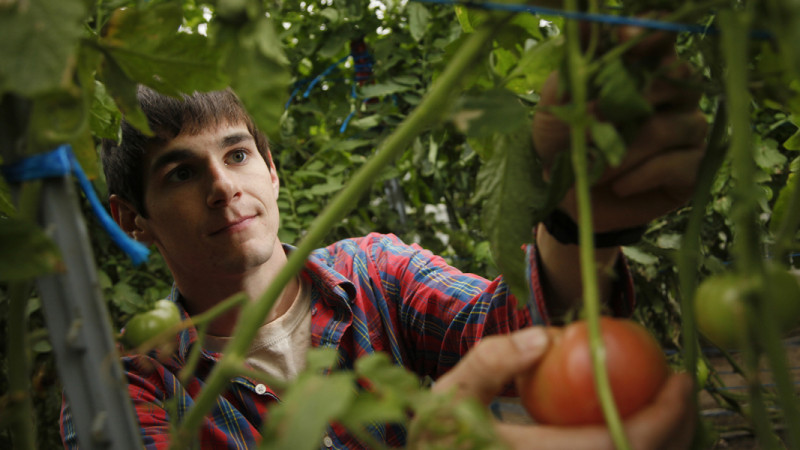By Sheridan Wimmer on March 13, 2024
Farm Labor is highly respected on Kansas farm
Juniper Hill Farms, an employer of agricultural workers, sets the bar for creating a respectful atmosphere
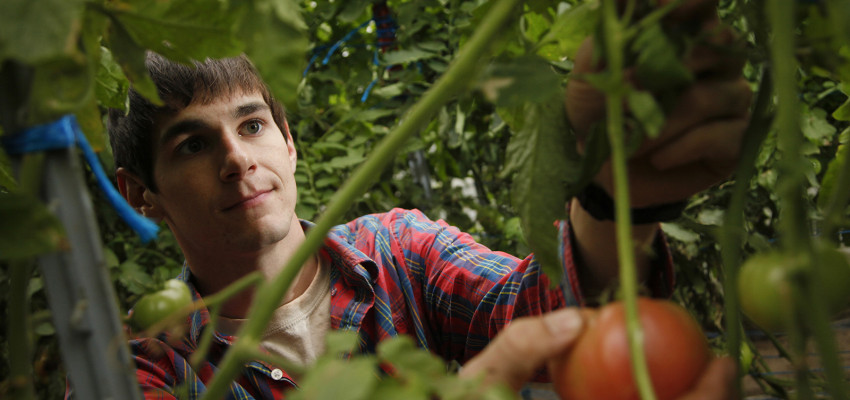
Food in our grocery stores doesn’t come from the back room or the truck dropping it off. It comes from fields, orchards, pastures, greenhouses and groves – where laborers work long hours to care for the products you conveniently purchase in one, maybe two stores.
The U.S. agricultural workforce comes in two types: 1: self-employed farm operators and their family members, and 2: hired workers. Both types are integral to the success of an operation and at farms like Juniper Hill Farms in Lawrence, whether you’re the farmer or a hired worker, you’re family.
“Frankly, our crew is family,” says Scott Thellman, owner and president of Juniper Hill Farms, a diversified vegetable and row crop farm. “I couldn’t do anything I do to grow our operation and produce food for our community without my crew.”
The Lawrence-based farm will hire 14 to 20 laborers at the peak season. Due to the nature of the operation, there is an offseason when work slows down and doesn’t require as many employees. In those cases, Thellman still tries to make sure his crew is taken care of by finding them work elsewhere.
“I’ll intentionally talk to other farmers and ranchers in the area who I know need labor,” he says. I’ll try to set them up with jobs in the offseason, and then if they come back to me in the peak season, there’s typically a raise associated with it.”
CULTIVATING CARE
Farm labor in America is a serious issue for farmers and ranchers, and it has been for years. In 1986, the United States Department of Agriculture (USDA) implemented the H-2A guest worker program to bring foreign workers to the U.S. for temporary or seasonal agriculture work when domestic labor supply is low. Although Thellman doesn’t currently utilize the H-2A guest worker program, he says he is interested once he can secure housing for workers – a requirement of American farmers and ranchers who utilize the program.
Soon, however, Thellman will offer subsidized housing to his permanent resident workforce. He already provides paid time off and sick leave.
“Any incentive I can offer, I want to be able to provide because these guys are like family,” he says. “Some of our guys have been with us for 12 or more years. They’re amazing people with great stories and they’re contributors to our local economy.”
The incentives Thellman offers are part of his desire to build skills in their careers.
“We’re really working to be the best employers we can be and provide not just a job, but a career,” he says. “We’ve tried to develop a culture of building a better leadership pyramid to where we’re training individuals to take on more responsibilities and develop stronger skillsets for future career opportunities, which we hope will be with us, but also if they choose to move into different positions.”
INJURY TURNED OPPORTUNITY
Thellman recently experienced an extensive injury to his wrist that required surgery and a cast, which prevented him from being able to perform necessary jobs on the farm. But he credits his employees and says it will end up being a positive event for his operation in the long term.
“The last two weeks, I haven’t been able to drive a tractor,” Thellman says. “But we still got all our groundwork done and our chicken litter spread because of my crew. It’s also requiring me to gain a new sense of patience and appreciation for my employees. In the long run, my injury was probably the best thing that could have happened at Juniper Hill Farms because it requires me to be a better teacher and ultimately gives our staff more experience.”
DRIVING HOME RESPECT
Although Thellman can’t currently drive a tractor, he continuously drives the conversation about respect for his employees.
“We couldn’t do what we do without our employees,” he says. “There’s just not enough people interested in agriculture who want to do the work. These workers are members of our community. They’re good, wholesome family members. They care about their family and community and food. We need to respect the fact that we need these laborers to help build American agriculture for the future.”
Working in agriculture – on those fields, orchards, pastures, greenhouses and groves – is hard work. The hours are long, the work can be messy and the duties are sometimes thankless. But when people like Thellman find the right type of employee, they are dedicated to their respect and care.
“Ag is a hard industry to be in and requires sacrificing commitments certain times of the year and goes well beyond the typical eight to five,” Thellman says. “Finding those types of employees who are willing to work a farmer’s schedule can be challenging but once we find them, we certainly have to take care of them and treat them with a tremendous amount of respect and care because they’re hard to come by.”
Learn more about Juniper Hill Farms at www.jhf-ks.com.

